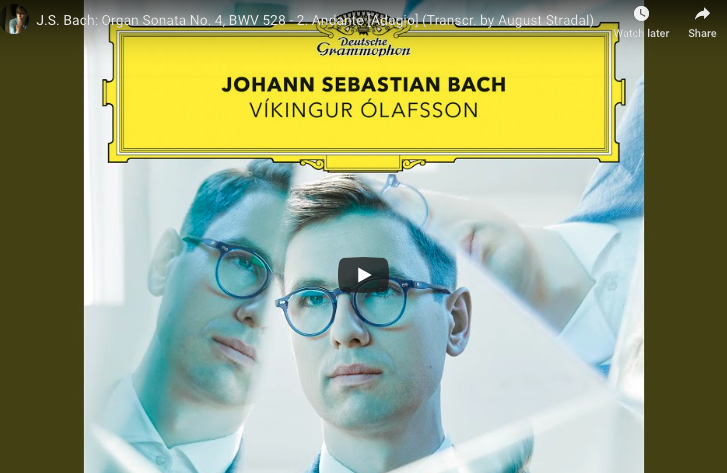As Icelandic pianist Víkingur Ólaffson’s hands glide their way over the piano, Bach’s Organ Sonata No. 4 emerges as if out of a dream. The music moves with desire and intent, drawn as if by love, unto completion. We experience great glory in the union of instrument and musician.
Master violinist and Australian Chamber Orchestra Musical Director Richard Tognetti declared last year that “Bach is God to musicians“:
“We’re all disciples of Bach, as cringeworthy as that might sound. You can’t help it. Study any piece of his – and, unlike with anyone else, every piece, every damn piece, is the work of the hands and brains of a genius.”
Richard Tognetti
If Bach is God, Ólafsson here is reverently caring for the creation. The sounds the Icelandic virtuoso draws forth from his piano evoke a calming sense of peace all while telling an evolving drama of the spirit.
The notes tumble as if a stream of water could rise upstream and flow downstream on the direction of the musical master. We feel the intensity and enjoy the revolutions and resolutions entwined in each phrase. This experience is an unfolding and a binding together:
These notes are a discovering musical phrases tumbling over the piano like an ever-flowing stream — sourced from above.
These revolutions are an unfolding
drama with constant movement
and liveliness capturing listeners;
we hang on every resolution.
These sounds are delight for the senses
a reaching toward completion,
a gathering together of the scattered,
a going out and a coming home.
These melodies are a retrieval
the intentions of Bach interpreted for today
like memories gratefully received
like stories heard with reverent awe.


[…] Philip Glass – Piano Etude Number 15, as played by Víkingur Ólaffson […]